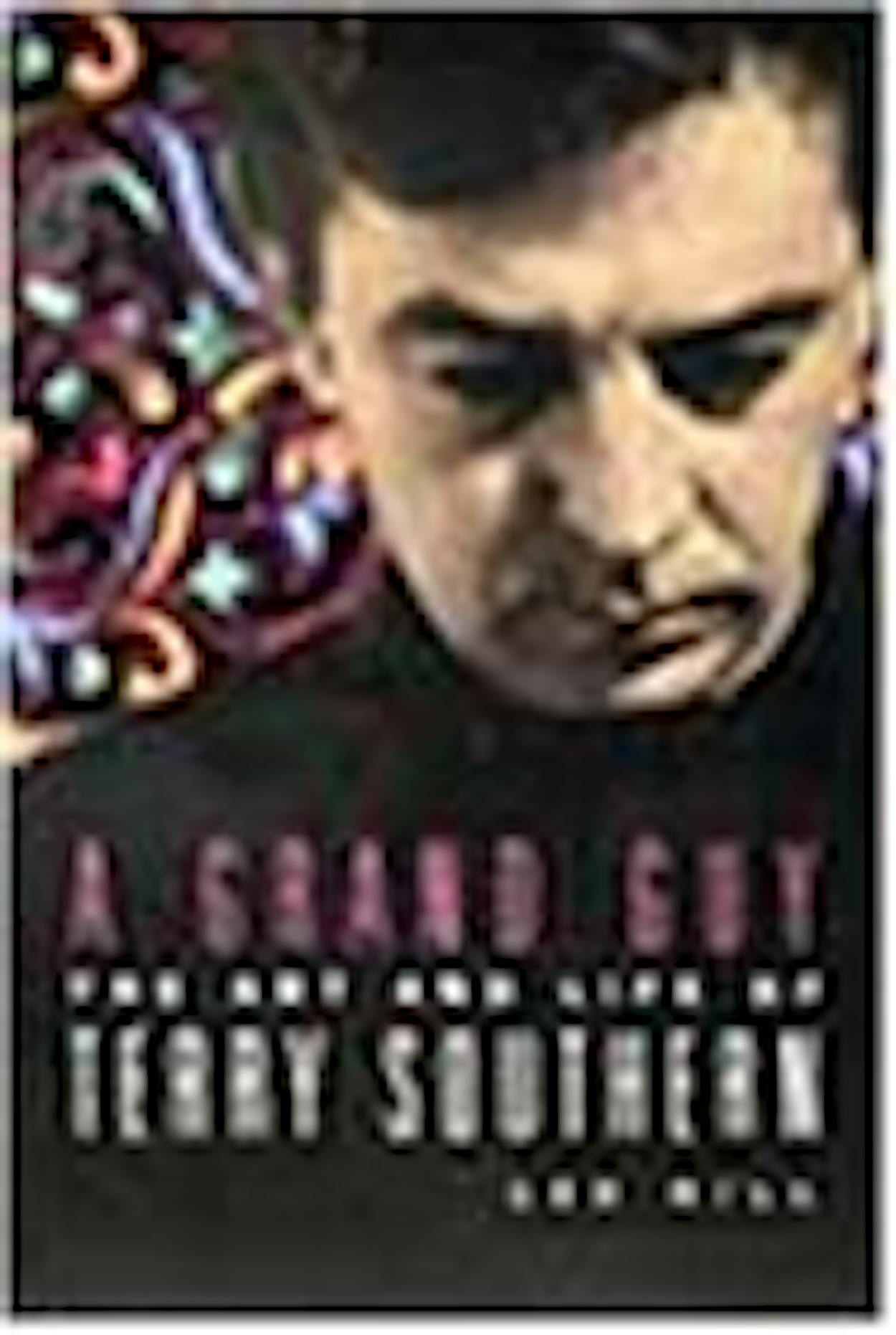Admit it—while trying to decode the cover of “Sgt. Pepper’s,” you were always stumped when you got to the pasty-faced sunglasses guy between Dylan Thomas and Dion. And despite Lee Hill’s best efforts to strip away the shades in “A Grand Guy: The Art and Life of Terry Southern,” his subject remains somewhat of a mystery. Our perception of the author, screenwriter, and all-purpose hipster is firmly rooted in the sixties—Southern wrote or co-wrote “Candy,” “The Magic Christian,” “Dr. Strangelove,” and “Easy Rider,” for starters—but he was molded by an earlier generation. An Alvarado native, he was a World War II vet who expatriated himself to Europe and cut his teeth as a writer in the Gore Vidal-Norman Mailer era. His subsequent move to Greenwich Village in the fifties found him knocking about with such Beats as Burroughs and Kerouac.
Hill posits that Southern’s patina of cool was a defense mechanism to offset his ingrained shyness. Ultimately, it seems, the hipster guise that was once a gate to draw people in became a fence to keep them out. The portrait that emerges from “A Grand Guy” is of an extraordinary talent and a rare personality obsessed with traveling the outsider’s path. For all of his early success, his later life was a series of false starts (including a fairly disastrous tour of duty with “Saturday Night Live” in 1981 and 1982), and his penchant for intoxicants of one sort or another resulted in a hit-or-miss output from the eighties until his death in 1995.
Terry Southern was an icon of a generation and a brilliant satirist. But his legacy is sullied by images of the aging writer slouching into mediocrity. “A Grand Guy” is a well-deserved tribute to a cultural lion whose notoriety threatens to overshadow his body of work.







